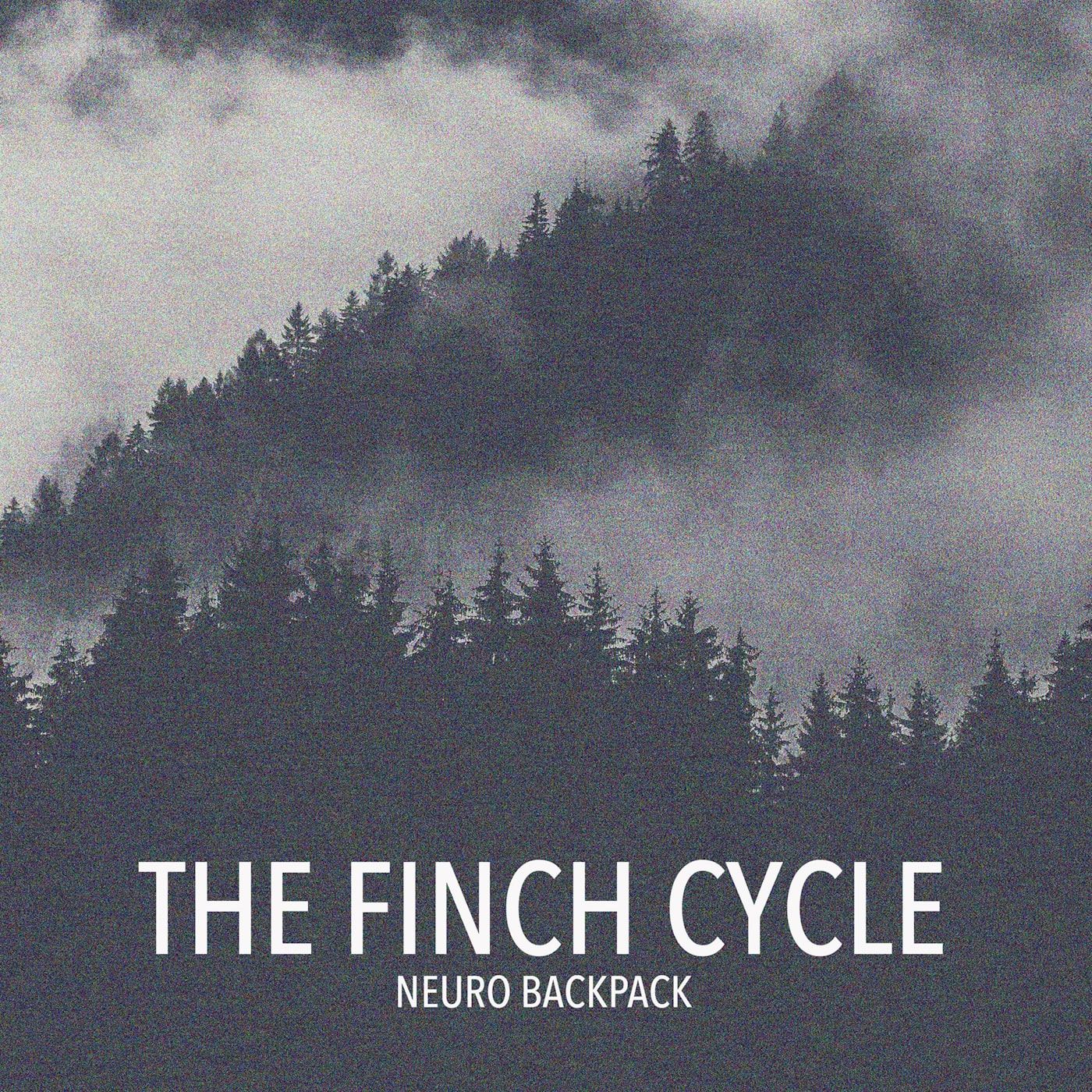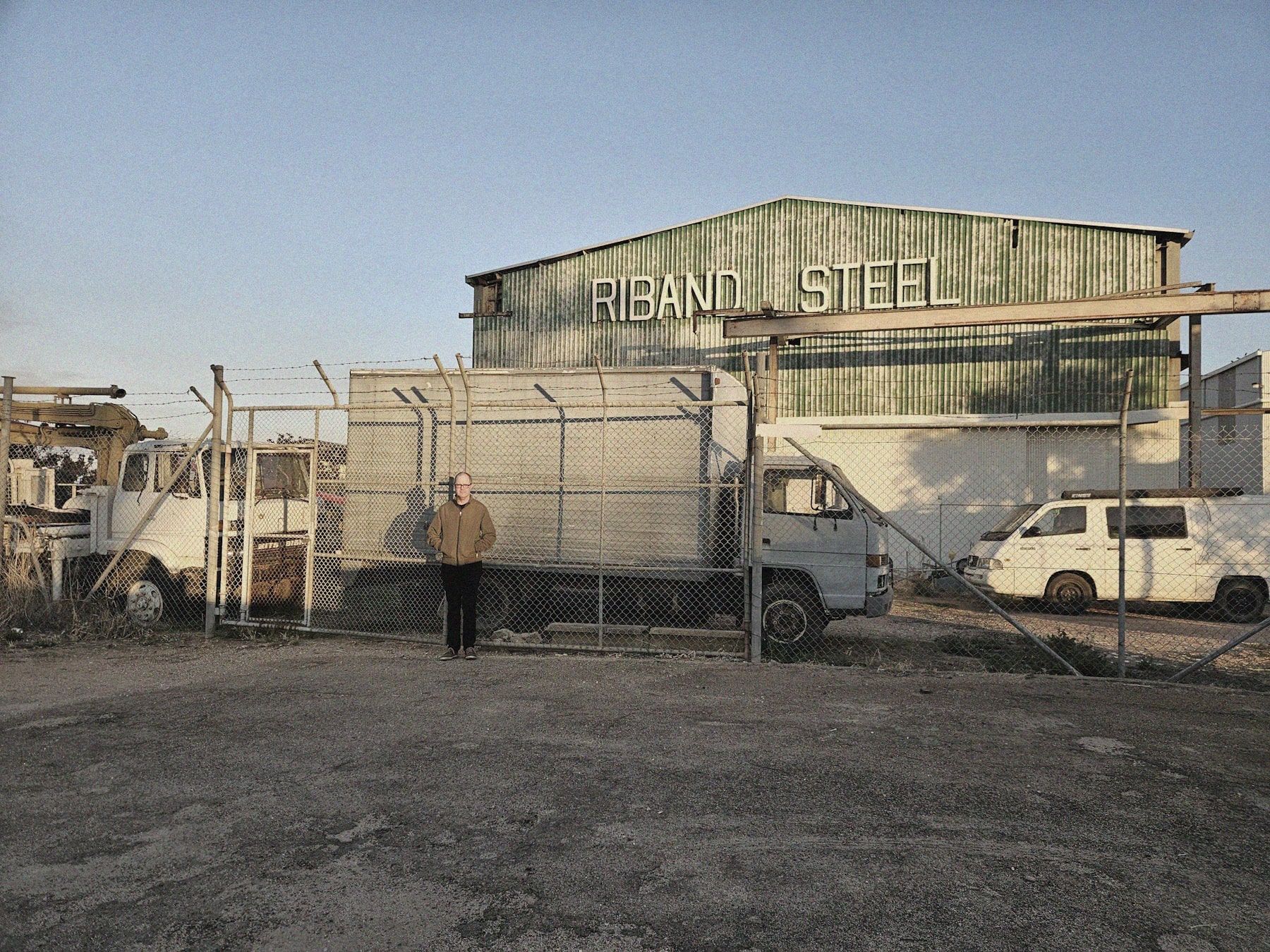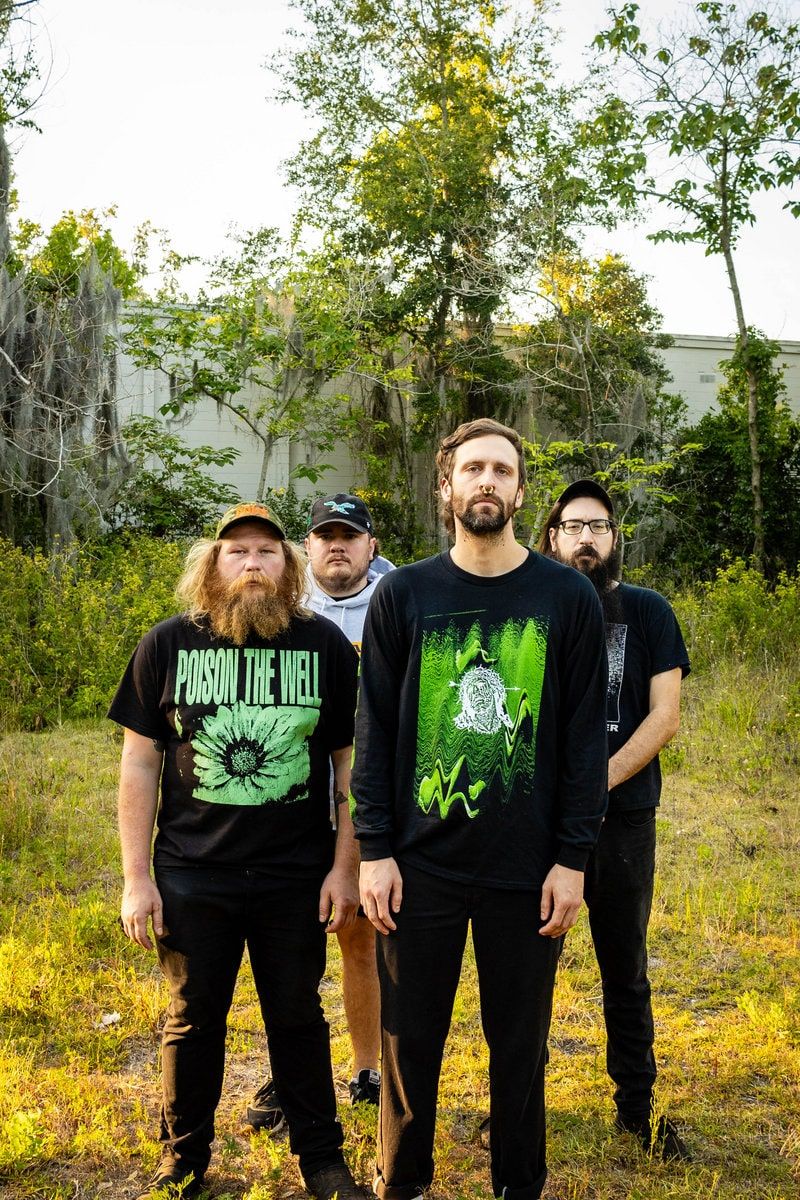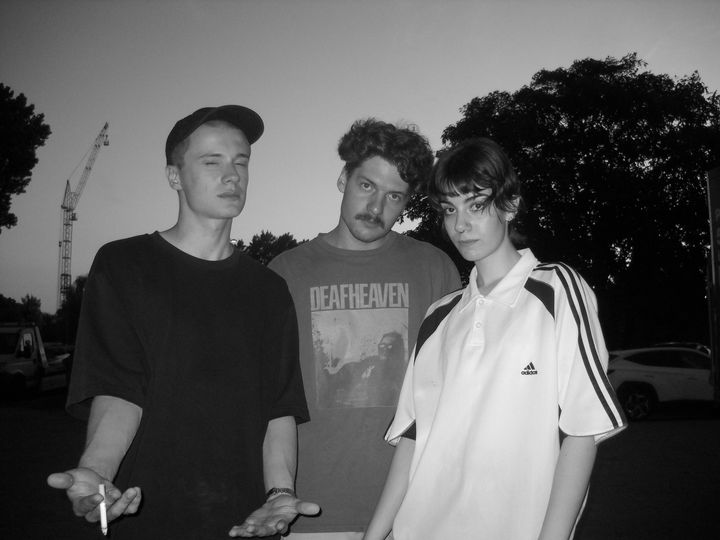The Finch Cycle, helmed by Bradley Murray, has just dropped a duo tantalizing new singles, “Diesel Hands” and “Neuro Backpack,” captivating precursors to the highly anticipated debut album, “Mt. Pilot,” set to release on June 21. This IDIOTEQ featured project is a deep, cinematic journey through soundscapes that Murray has meticulously crafted, drawing from his rich history in indie rock and post-rock influences.
His transformation from the slow-core and emo realms of the mid-2000s into the expansive and emotive terrains of post-rock is nothing short of fascinating. As he shares, “I’ve come back to music in the last few years, fulfilling my long-term dream of creating post-rock music. My songs naturally come from a traditional rock platform, with verses and choruses, but I enjoy crossing over into instrumental music.”
“Diesel Hands”, the second single from “Mt. Pilot”, sweeps the listener into a passionate sway, buoyed by the sultry notes of the trombone. Midway through, it gains a dynamic intensity reminiscent of indie alt-rock and even the post-hardcore sounds of the ’90s. This confluence of influences showcases the artist’s ability to blend various styles seamlessly, leading to a delicate yet unmistakable climax.
The subsequent track takes this rhythmic foundation and expands it into more complex compositional territories. It offers us even more intricate time signatures and unexpected twists, all while remaining within the realm of cinematic soundscapes. It’s as if the story being told changes its pace and mood in real-time, a transformation you can feel directly through the music.
“Neuro Backpack” is a dedication to neurodiversity, a personal nod to his children and a commentary on the need for better support for neurodivergent kids, especially in schools.
This track, like the entire album, was born out of various homes across Victoria, Australia—Ballarat, Bendigo, and Wangaratta—each place infusing its own unique atmosphere into the music.
Murray’s collaborators, Brendan Bartlett on trombone and Michael Evans-Barker on drums, add rich layers to the sound. Brendan, a former drummer for SUNNY DISPOSITION and a wizard on the trombone, brings an unexpected yet perfect blend to the music. Michael’s drumming, described by Murray as a crucial part of THE FINCH CYCLE’s sound, provides a distinctive rhythmic backbone that drives the intensity and emotion of their tracks.
The album, “Mt. Pilot,” is named after a region close to Murray’s heart, a nod to the stunning natural landscapes of North-East Victoria. The cover art, featuring trees and forests, perfectly encapsulates the serene yet powerful essence of the music within. It’s post-rock at its core, but with an emotive indie rock flair reminiscent of Australian bands like BLUEBOTTLE KISS. Murray’s aim is clear: to create music that is as beautiful and serene as it is intense and complex.

Stay tuned for the full interview with Bradley Murray below, where he delves deeper into the making of “Mt. Pilot,” the inspirations behind his music, and what’s next for THE FINCH CYCLE.
Bradley, could you take us through the journey from SUNNY DISPOSITION to THE FINCH CYCLE? How did your musical evolution shape this project?
Sunny Disposition was a band I played in in the mid-2000s – primarily influenced by slow core and emo bands from the late 1990s, which is still my favourite music to listen to. However, around the same time, I very much got into Mogwai and the burgeoning post-rock scene in Melbourne at the time.
I would often go out to watch bands like Laura, Because of Ghosts, International Karate, This Is Your Captain Speaking, and Radiant City. I was also managing Radiant City at the time and releasing their music through my own label Wireless Records.
Then, life got in the way, kids, marriage, career! I’ve come back to music in the last few years, and I guess fulfilling my long-term dream of creating post rock music. Because I love emo and sadder music so much, when I create songs, it is naturally coming from a traditional rock song platform, as in verses and chorus. I am trying to break out of this mould, but at the same time, I like the crossover of instrumental music following a traditional structure.
I am still heavily influenced by the likes of Karate, American Football, Art of Fighting, Foxing and Pianos Become the Teeth.
The name “The Finch Cycle” evokes a sense of nature and renewal. What inspired you to choose this name for your project?
I am teacher by trade, and I used to share an office with a very close friend whose last name was Finch. We worked at the same school he went to as a student, and we had a running joke that he had gone ‘full cycle’, and effectively had never left school. We had a photo of him when he was in school with arrows around it, create a circle – this is where I got the name ‘The Finch cycle’ from – me taking the piss out of a good friend of mine. So every time I do something as ‘The Finch Cycle’, I am reminded of this wonderful person!
Your recent single “Neuro Backpack” is a dedication to neurodiversity. Could you share more about the personal or external experiences that inspired this track?
This is a dedication to my kids – in fact, half of the names of these tracks are dedications to either my kid’s names or things they have done or said. I think there isn’t enough support for neuro divergent children, particular in schools, and I wanted to put something out into the world which commented on this, despite not having any vocals or lyrics.
The album ‘Mt. Pilot’ was recorded in various regional cities in Victoria. How did these different locations influence the music and atmosphere of the album?
It was purely a case of convenience, Mike who plays the drums, lives in Ballarat, whilst Brendan, who plays trombone, lives in Bendigo, and I am in a town called Wangaratta – we all have our own lives – marriages, kids, mortgages, and it is very much a case of just finding the time to make music outside of our very busy lives. I’d love to be able to get into a room and record live one of these days (like we did for the very first single), but sometimes, things have to be done in stages – like this album. I think it still comes out as a cohesive collection of songs, despite not being recorded live all in the same space.
View this post on Instagram
The cover art features trees and forests. What significance do these natural elements hold for you and the music of THE FINCH CYCLE?
The cover and title are a reference to this beautiful area I now call home. The North-East of Victoria is an amazing region, surrounded by mountains and wineries. It is an amazing part of the world, and out of all of the mountains, I chose to name this album after ‘Mt. Pilot’, mainly because whenever I drive on the highway going north to our nearest larger city, I see the turn off sign for Mt. Pilot, and always think about how it is a weird name for a mountain.
How do you balance the various moods in your compositions, from the serene to the intense? Do you follow a specific structure or is it more organic?
Honestly, I’m trying to move to the heavier side of this genre. I definitely have been leaning more into chugging away on the guitar, using syncopation, and also trying to explore more complex time signatures. The ‘verse’ of this track is in 11, and another track from the album has a great pattern which is three phrases of 5/4 time, followed by 4 phrases of 3/8 time – this is something I want to do more of – I think having interesting and complex rhythms allows music to be unique and authentic.
Brendan Bartlett on trombone and Michael Evans-Barker on drums bring unique elements to your music. How did these collaborations come about, and what do they each bring to THE FINCH CYCLE?
This whole project was a result of a birthday party – I booked out a large farm house near Hanging Rock for my birthday, and invited a group of friends to jam and record in this converted barn – this is where the first track came from – and as a result, I have continued to work with these people – Mike on drums, Brendan on trombone, and Andrew, who is the mastering engineer for all of The Finch Cycle tracks. A few other friends who were there that weekend, I hope to include on future recordings as well.
Ideally, it would be great to get all of them back into a space to record a whole EP or album live – but, as I said before, finding the time to do things like this is very hard! Mike’s drumming has a certain sound to it, that I love. It is very much a large part of the ‘Finch’ sound. Brendan was the drummer from my previous band, Sunny Disposition, but is also a wizard on the trombone. Sunny Disposition had a cello player, and I guess I am drawn to having real, non-traditional instruments feature in music. I think the trombone is the perfect instrument for this kind of music.
Ballarat, Bendigo, and Wangaratta are not typically known as music recording hubs. How do these local scenes contribute to your music, and what makes them special for you?
For me, it doesn’t really matter where the music happens, I have my own recording rig that I can take anywhere – any space is a studio for me. I would like to explore using unique spaces in the future, just like that first single, in which that ‘room’ could be heard in the drums. So, if we manage to make a second album, I definitely want to capture the ‘room’ or space that we record in.
Are there any local or emerging artists you’ve discovered in 2023 and 2024 that you would recommend to our readers?
My good friend Andrew, who played in Radiant City (who I used to manage in the mid to late 2000s, has a new band called Champion Motorist, they are great – and their ethos of ‘capturing the sound of a space’ is lived out in their recordings. The drums sound amazing on these recordings.
As an ex-owner of Wireless Records, how has your experience in the music industry influenced your approach to making music with THE FINCH CYCLE?
I spent 10 years running Wireless Records. In that time, I put out 20 releases of some amazing bands. Back in the 2000s, this was primarily on CD, and on occasion, also on vinyl. Back then, I spent significant money to record, press and promote releases, and this was physically distributed by a company called The Groove Merchants (or MGM Distribution) – a lot of the time involved printing and putting up posters, advertising in physical street press, and being out there in the musical world, in venues, on tour and so on.
Back then, bands had to go to studio to record – not many people had the capacity to record at home. These days, for The Finch Cycle – it is all done at home or in unique spaces and distributed digitally only at this stage. For me, the costs are very low – I might do some online advertising, but it is low stakes in terms of real money spent – If we ever get this band off the ground, and play live, that would be a dream come true. I am very grateful to have my music distributed digitally by The Orchard out of New York – they make the process really easy to navigate. I would love to release music on vinyl, as a personal goal of mine.
With ‘Mt. Pilot’ set to release in June, what are your hopes for the album? Are there any particular messages or emotions you want listeners to take away?
I really hope people like it. I guess my hope is for this music to become more intense and darker as time goes on. I have fallen in love the band Coastlands, which has opened my eyes to new ways to interpret the genre. I think I will always be grounded in emo / indie music, but most certainly want this instrumental music to be more brutal, more angular in nature.
Looking ahead, what can fans expect from THE FINCH CYCLE in the coming years? Any plans for live performances or new projects?
We have spoken about performing live – it would be amazing, but having the time to make this happen, as well as the logistics of distance, makes it hard to do. Regardless of this, I hope to always be creating music, until I can no longer physically handle it. So, I hope to keep pumping out music for many years to come.











